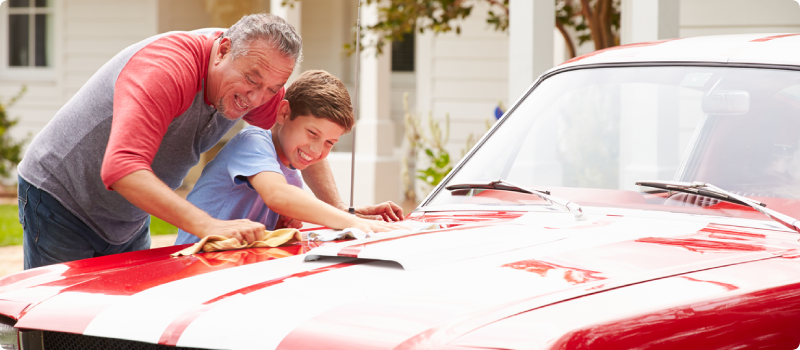Agreed value vs. stated amount
Updated February 28, 2024 . AmFam Team
There is nothing quite like the feel of driving an antique or classic car and turning heads wherever you go. That’s why protecting your ride as much as possible with the right kind of car insurance is so important. But what type of insurance is best for both your classic vehicle and personal situation?
However, before you begin researching the differences between agreed value and stated amount and how it affects your car insurance, it's important to determine whether your car is eligible. Your American Family Insurance agent can help you determine if your vehicle qualifies for antique/classic auto insurance. Then, once you establish your car’s status, it’s time to look into what type of insurance you want.
What is agreed value?
Agreed value is a type of coverage where you and your insurance company agree upon the value of your vehicle when you take out the policy.
Agreed value can be a great approach because it gives you the opportunity to explain to the insurance company everything you’ve put into the car and why it may have more value than other, similar vehicles. In the event of a covered loss, you’ll be reimbursed the lessor of the repair cost to fix the vehicle or the agreed value, regardless of any depreciation.

What is stated amount?
The stated amount of an antique or classic car is a bit more complex as there is a capped amount that will be paid based on the price of repairs, actual cash value at the time of loss or the agreed upon stated amount.
The benefit of a stated amount car insurance policy is that it is a way to lower your premiums and give you all the protection you can afford.
Additional car insurance
While your classic car is pretty special, it still has some of the same insurance needs and requirements that any other vehicle has. Property, collision and comprehensive insurance give you the same protections with a classic car as they do with your everyday vehicle. Liability insurance is required in many states and this requirement applies to antique vehicles as well.
In addition, there are other add-ons your agent can help you select that will make you feel more comfortable about the level of protection you have for your favorite set of wheels, and the loved ones who ride in it.
This information represents only a brief description of coverages, is not part of your policy, and is not a promise or guarantee of coverage. If there is any conflict between this information and your policy, the provisions of the policy will prevail. Insurance policy terms and conditions may apply. Exclusions may apply to policies, endorsements, or riders. Coverage may vary by state and may be subject to change. Some products are not available in every state. Please read your policy and contact your agent for assistance.

